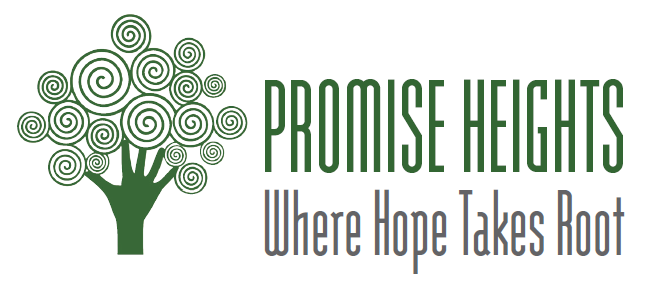SSW, Shock Trauma, and Partners to Help Teens
A new effort to improve the well-being of West Baltimore residents has been launched with the support of the BUILD Health Challenge , which recently awarded a $75,000 planning grant to Healing Together Collaborative: Preventing Youth Violence in Upton/Druid Heights (HTC).
Key partners in HTC are the R Adams Cowley Shock Trauma Center ’s Violence Prevention Program at theUniversity of Maryland Medical Center and the Promise Heights initiative, which is led by the University of Maryland School of Social Work (SSW).
These programs are collaborating with the Druid Heights Community Development Corporation (DHCDC), which is the lead recipient, and with the Baltimore City Health Department (BCHD) and other partners. The collaboration began after The Baltimore Sun in December published “Collateral Damage ,” a prize-winning series showing the impact of violence on children and how the SSW works to lessen the harm.
HTC will develop a comprehensive youth violence prevention plan for the Upton/Druid Heights communities. Competing against more than 300 applicants nationwide, it secured one of 18 grants announced in Washington, D.C., on June 9. The prestigious BUILD group, formed to fund ground-breaking, community-driven initiatives, awarded seven implementation grants of $250,000 and 11 planning grants of $75,000 for still-nascent projects addressing specific public health challenges.
In West Baltimore, HTC intends to confront the unaddressed trauma caused by the stress of poverty, community violence and lack of community cohesion in Upton/Druid Heights. Nearly half of the adults have less than a high school diploma, or a GED, and more than half of the residents have an income of less than $14,999, according to the 2010 U.S. Census. Life expectancy is the lowest in Baltimore, and 10 years shorter than the citywide average. The murder rate is 1.8 times higher than that for the city.
Youth violence is a serious problem in this neighborhood, and in Baltimore, where homicide is the leading cause of death of city residents 15-24 years old. By mid-July, the number of juvenile victims, defined as ages 17 and under, had reached 13 in the city during 2015. The negative effects of violence go beyond those who have been directly harmed. A 2000 study of victims seen at Shock Trauma found that 74 percent had observed neighborhood violence.
Over the long term, trauma engenders ailments such as high blood pressure and diabetes and mental health issues such as depression, anxiety, and sleep deprivation. People also may develop risky behaviors to deal with the pain of trauma, including drug abuse, physical inactivity, and other harmful practices. Unaddressed, this trauma can lead to social issues such as intergenerational trauma, delinquency, violence, and criminal activity, among others.
The task is to interrupt the patterns, while drawing on the assets of the neighborhood, described as Baltimore’s oldest African-American community and one that has been home to musicians, artists, and civil rights leaders. It also benefits from two federal, place-based planning initiatives, CHOICE , through the U.S. Department of Housing and Urban Development , and Promise Neighborhoods , a U.S. Department of Education program that awarded a 2012 grant to the University of Maryland, Baltimore(UMB) for Promise Heights.
Rachel Donegan, JD, describes the demographic profile of Promise Heights’ Upton/Druid Heights neighborhood as SSW Dean Richard P. Barth, PhD, MSW, listens.
SSW assistant dean Bronwyn Mayden, MSW, executive director of Promise Heights, and Rachel Donegan, JD, program director of Promise Heights, serve on the HTC steering committee, which met June 26 to discuss strategies and concerns of the community.
“In conversations we’ve had with youth in Upton/Druid Heights, there is a feeling that systems designed to serve them have, in fact, failed them. This feeling creates a disconnection from self, family, and neighborhood. Over the next year, we hope to hear directly from youth about strategies that will create youth/community cohesion, lower stress, and create barriers against the negative effects of trauma,” Donegan says.
Shock Trauma is represented by Tara Reed Carlson, MS, RN, business development manager and co-founder of its Center for Injury Prevention and Policy and by Ruth Adeola, MS, RN, violence and injury prevention program coordinator. Shock Trauma’s Violence Prevention Program aims to prevent violent injury among the city’s most at-risk populations by researching root causes of violence and developing targeted, evidence-based programs.
“A significant proportion of violent behavior results in homicide, but many more victims survive and are left with permanent physical and emotional scars. Often these emotional scars translate into a downward spiral that perpetuates into a cycle of interpersonal violence in the community,” says Carlson.
HTC partners include the BCHD, which is focusing on Upton/Druid Heights through its Office of Youth Violence Prevention; Roberta’s House , a family grief support center that has served more than 115 Upton/Druid Heights residents; and Maryland Communities United , a grassroots membership organization of people who may be crime victims, mothers whose children were murdered, the families of the incarcerated, and individuals who were formerly incarcerated.
BUILD projects such as HTC were recognized on the strengths of their BOLD, UPSTREAM, INTEGRATED, LOCAL, and DATA-DRIVEN approaches to address the social and environmental factors that have the greatest impact on health
The BUILD Health Challenge was founded by The Advisory Board Company , the de Beaumont Foundation, the Colorado Health Foundation , The Kresge Foundation , and the Robert Wood Johnson Foundation to encourage community partnerships among local non-profit organizations, hospitals and health systems, and health departments to improve the health and well-being of their residents.
Read the full article at the University of Maryland Baltimore website:
